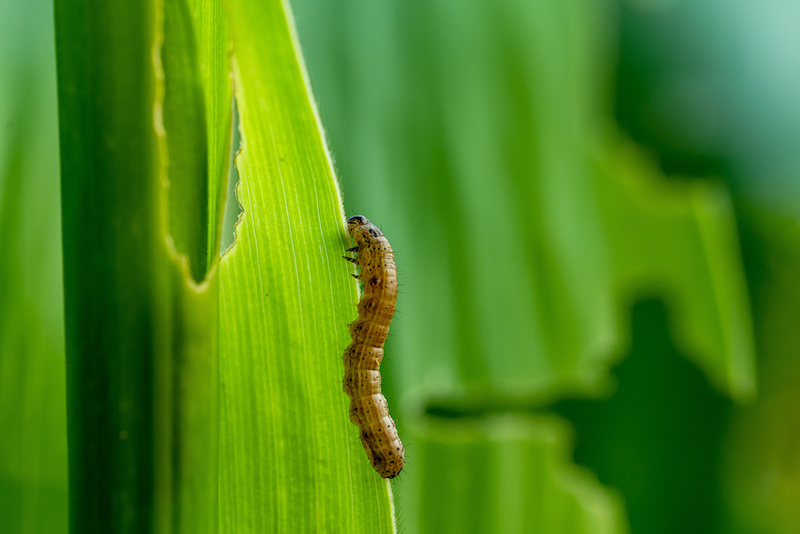
This time of year in Delaware and Maryland we start to see an annual pest come back to visit. At Royal Lawn Care, we’re here to share everything you need to know about armyworms and the damage they can cause to lawns, crops, and pastures.
Our team has seen outbreaks in Sussex County, leading us to be proactive and keep you informed about how we can help set up treatment and restore any damage armyworms may have caused. How do you know if you have an armyworm infestation? Keep reading to find out!
What Are Armyworms?
Armyworms are small caterpillars that are the larvae of a tiny brown-gray moth. The pests get their name from their tendency to crawl together in large numbers, depleting the food supply in an area. Armyworms usually focus on agricultural crops but in the later months of summer and early fall, the caterpillars and moths will go after any food they can – including your lawn.
The armyworms can be identified by their original coloring of green with a black head, but then turn brown with white lines on their side after they’ve been munching on grass for about two weeks.
How to Tell if Your Lawn Has Armyworms
It’s important to stay vigilant this time of year for any unwanted pests. Armyworms are much easier to treat if you catch them early. Check out these tips to stay on top of your lawn and catch any armyworm infestation signs immediately.
- Grass Type: Determine if your grass is prone to armyworm infestations. Grass types such as buffalograss, fescue, ryegrass, and bluegrass are more likely to experience armyworms setting up camp.
- Brown Patches: Brown patches in your lawn can be an indicator of these pests. Armyworms are fairly visible to the eye so they can also be spotted crawling on your driveway and sidewalk.
- Birds: The caterpillars are a great snack for birds. Since the armyworms are most active at night and early morning, you may see an increased number of birds in your yard feasting. This can certainly help lower the number, but won’t be enough to restore your lawn.
If you see these pests in your yard, have experienced armyworm damage, or want to be proactive in checking for infestation, our Royal Lawn Care team is here to help! Contact us today to set up treatment for these pests or book lawn restoration.
